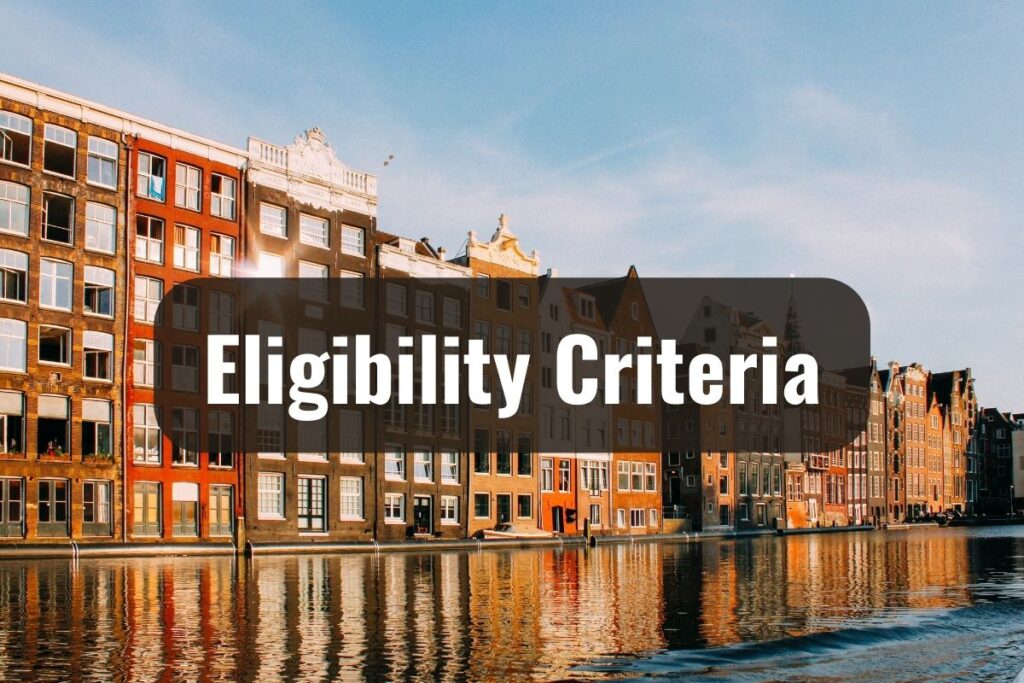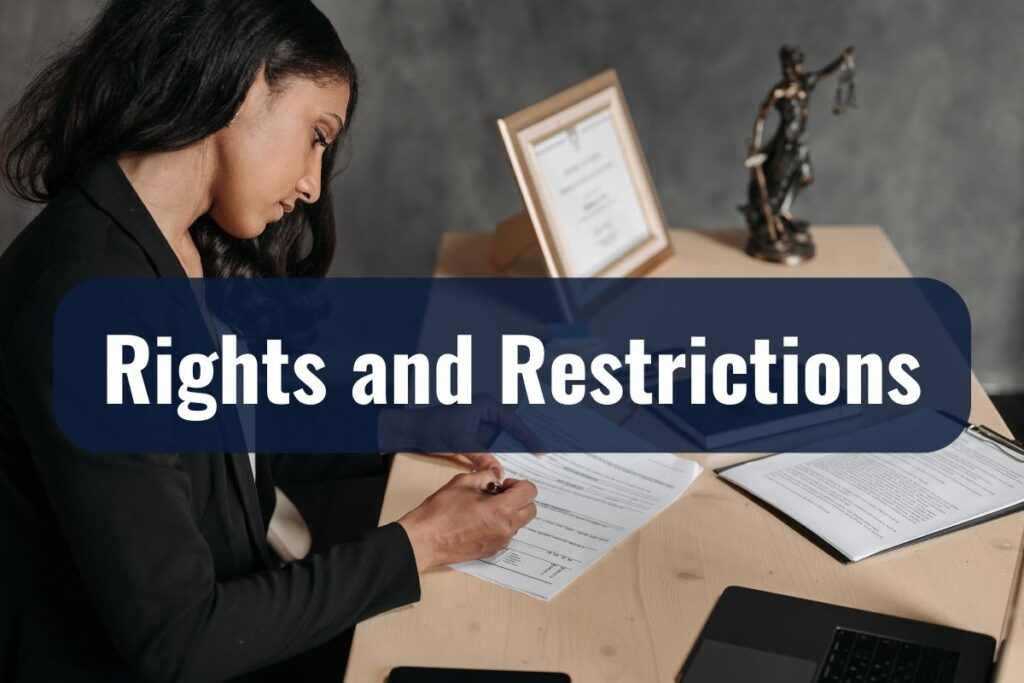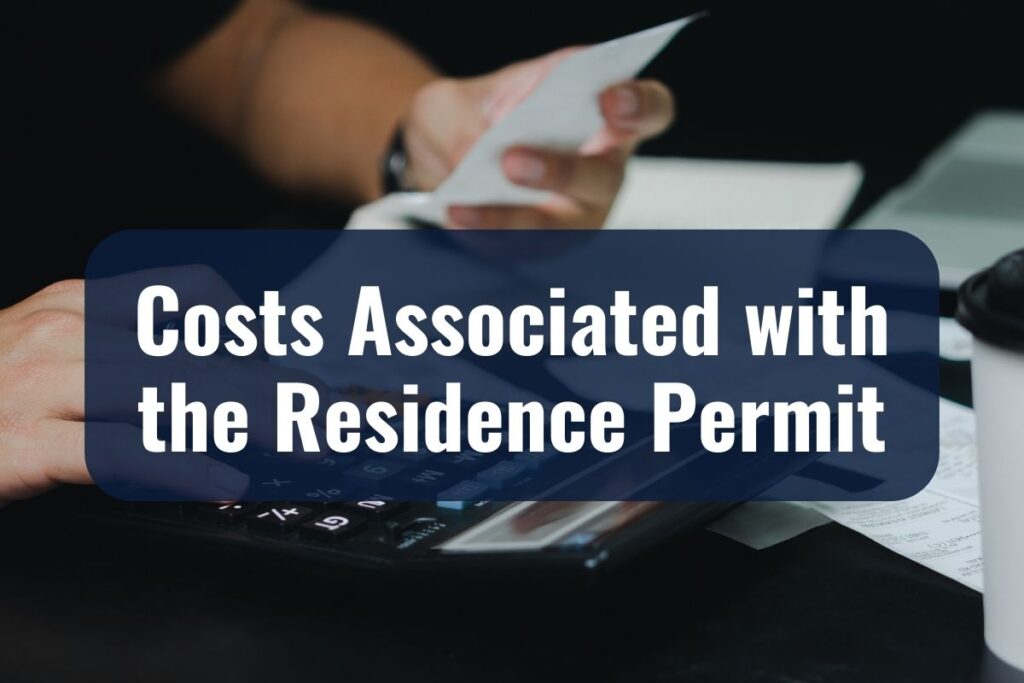Making the transition to life in the Netherlands, like moving to any foreign country, presents an array of challenges. Chief among these is navigating the intricacies of obtaining the correct residence permit. The process can seem daunting for those unfamiliar with Dutch regulations and the Dutch language.
Key Takeaways
- The Netherlands offers a range of residence permits tailored to individual circumstances and purposes.
- The application process is systematic, requiring careful attention to details and documentation.
- While residence permits confer various rights, they also come with specific responsibilities.
- Extensions, renewals, and changes of purpose are feasible but must adhere to set protocols.
- The Civic Integration Exam is pivotal for integration and progression towards long-term residency.
- Acquiring a residence permit entails both administrative and financial commitments.
Types of Residence Permits in the Netherlands
Navigating the labyrinth of residence permits can be a challenging endeavor, especially for those new to the Dutch system. Each permit caters to specific needs and purposes, underscoring the need for clarity and precision in choosing the right one.
Temporary Residence Permit (Verblijfsvergunning)
This is, as the name suggests, a permit issued for a limited duration. Often, it is granted for specific reasons, such as work, study, or family reunification. Depending on the purpose, the duration of this permit can vary. It’s imperative to note that this permit might have conditions attached, and holders must ensure they remain compliant throughout their stay.
Permanent Residence Permit (Vaste Verblijfsvergunning)
After residing in the Netherlands for an uninterrupted period, typically five years, an individual may be eligible to apply for a permanent residence permit. This permit allows holders greater stability, as they are no longer subject to the conditions that might be attached to temporary permits. It represents a long-term commitment to residing in the country.
EU/EEA or Swiss Nationals
Citizens of countries within the European Union (EU), European Economic Area (EEA), or Switzerland enjoy a distinct status. While they do not require a residence permit to stay in the Netherlands, they might need to register with local authorities upon arrival. Their rights to live, work, and study in the Netherlands are largely governed by EU regulations.
Other Specialized Permits
The Dutch system recognizes that there are myriad reasons individuals might seek to reside in the country. Therefore, there are specialized permits tailored to these unique circumstances:
- Student Permit: Specifically for those seeking to pursue an education in Dutch institutions.
- Highly Skilled Migrant Permit: Targeted at professionals who possess expertise deemed valuable to the Dutch labor market.
- Researcher Permit: For individuals embarking on academic research in collaboration with Dutch institutions.
- Family Reunification Permit: For those wishing to join family members already residing in the Netherlands.
Eligibility Criteria

Gaining a residence permit in the Netherlands is a process grounded in meticulous scrutiny. The Dutch authorities have set forth stringent eligibility criteria to ensure that those seeking residence are well-suited to their intended purpose of stay.
General Requirements for All Applicants
Valid Passport: An unexpired passport or equivalent travel document is a fundamental requirement. It must be valid for at least the duration of the permit you’re applying for, though longer validity is advised.
Antecedents Certificate: Often, an applicant must present a declaration stating they have no criminal records that might be detrimental to public order or safety in the Netherlands.
Health Insurance: Securing comprehensive health insurance is mandated for the duration of one’s stay. It’s imperative that the insurance policy covers medical care in the Netherlands.
Sufficient Financial Means: To ensure that residents can support themselves, there’s often a need to demonstrate that one has access to adequate funds, either through employment, sponsorship, or personal means.
Specific Requirements Based on Type of Permit
Temporary Residence Permit: The criteria can vary vastly depending on the purpose, be it work, study, or family reunification. For instance:
- For work: Evidence of an employment contract or job offer from a recognized Dutch employer.
- For study: Proof of enrollment in a recognized Dutch educational institution.
- For family reunification: Proof of relationship and the status of the family member residing in the Netherlands.
Permanent Residence Permit: One of the quintessential requirements is proof of continuous and legal residence in the Netherlands for the stipulated duration, typically five years. Furthermore, successful integration, often demonstrated by passing the Civic Integration Exam, might be mandated.
Highly Skilled Migrant Permit: Evidence of a binding employment contract with a recognized sponsor in the Netherlands, and meeting the set income threshold, are pivotal.
Student Permit: A confirmed admission letter from an accredited Dutch educational institution and evidence of financial means to cover tuition and living expenses are quintessential.
Researcher Permit: A hosting agreement with a research institution recognized by the Dutch Immigration and Naturalisation Service, detailing the nature and duration of the research, is paramount.
Family Reunification Permit: Verification of the relationship, such as marriage or birth certificates, combined with proof of the residing family member’s valid residence status and sufficient income, is essential.
Application Process
Embarking on the journey to secure a residence permit in the Netherlands necessitates a thorough understanding of the application process. The intricacies of this process, while daunting, are designed to ensure that each applicant is evaluated fairly and in accordance with the standards set by Dutch authorities.
Initiation
Online Application: Many residence permit applications can be initiated online via the Immigration and Naturalisation Service (IND) website. Ensure you select the correct category and type of permit.
Paper Application: Some specific permits or situations might require you to submit a paper application. This typically involves downloading the relevant forms from the IND website, filling them out meticulously, and submitting them to the designated IND office.
Documentation Compilation
All applications necessitate a set of supporting documents. The nature of these documents will vary based on the permit type, but they generally encompass:
- A valid passport or travel document
- Relevant photographs conforming to Dutch standards
- Documents that substantiate the purpose of your stay (e.g., employment contract, enrollment letter)
- Proof of health insurance
- Any other specific documents required for your permit category
Submission and Biometric Information
Upon compiling the necessary documents, applicants are often required to schedule an appointment at an IND desk to submit the application in person. During this appointment, biometric data, including fingerprints, a photograph, and sometimes a signature, will be collected.
Application Fee Payment
The application process requires the payment of a fee. The exact amount is contingent on the type of permit and can be found on the IND website. Payment methods may include bank transfers, card payments, or in some cases, cash.
Awaiting the Decision
Post submission, your application undergoes rigorous scrutiny. The IND will assess your documentation and may, in certain instances, request additional information. The waiting period can vary, though the IND aims to process most applications within a few weeks to a few months, depending on the category.
Notification of Decision
Upon conclusion of the evaluation, you will receive formal communication regarding the outcome of your application. If successful, this will detail the steps to obtain your residence permit card. In the event of a refusal, reasons will be provided, and you might be granted the right to appeal.
Collecting the Residence Permit
Successful applicants will be invited to an IND desk to collect their residence permit. It’s vital to review the details on the card to ensure accuracy. Any discrepancies should be reported immediately.
Rights and Restrictions

Securing a residence permit in the Netherlands is a significant accomplishment, allowing individuals the privilege of residing in this vibrant nation. However, it is of paramount importance to understand that with this privilege come certain rights and corresponding restrictions. These parameters are delineated to safeguard both the permit holder and the larger Dutch community.
Rights
Duration of Stay: With a valid residence permit, an individual is authorized to stay in the Netherlands for the duration specified on the permit, be it for short-term or long-term purposes.
Access to Public Services: Permit holders generally have access to public services, including healthcare, public transportation, and other utilities.
Employment: Depending on the type of permit, the holder might have the right to work. For instance, highly skilled migrant permit holders have the right to work for their sponsoring employer. Some permits might require an additional work permit (tewerkstellingsvergunning or TWV).
Education: Those with a valid residence permit, particularly students, have the right to pursue education at Dutch institutions.
Social Benefits: Depending on the type and duration of the permit, some residents may be eligible for certain social benefits or subsidies.
Restrictions
Limitation of Activities: A residence permit is often issued for a specific purpose, such as work, study, or research. Engaging in activities outside the stated purpose, without prior authorization, could lead to complications or revocation of the permit.
Reporting Changes: Any significant changes in circumstances, such as a change in marital status, employment, or address, must be promptly reported to the Immigration and Naturalisation Service (IND).
Travel Restrictions: While the residence permit allows travel within the Schengen Area, there may be restrictions on traveling outside this zone or for extended periods. It’s crucial to verify the specifics of your permit before planning any travel.
Renewal Obligations: Temporary residence permits come with an expiration date. It is the permit holder’s responsibility to either renew the permit or depart the country by the expiration date.
Integration Requirements: Certain permits, especially those leading to long-term residency, might necessitate the holder to undergo integration measures, including taking the Civic Integration Exam.
Extension, Renewal, and Change of Purpose
Navigating the initial phases of securing a residence permit in the Netherlands is just the beginning. The dynamic nature of life means that circumstances may evolve, leading to the need for extensions, renewals, or even a shift in the purpose of stay.
The Dutch Immigration and Naturalisation Service (IND) acknowledges these potential changes and has systems in place to facilitate them. However, the onus lies on the permit holder to ensure compliance throughout these transitions.
Extension of Residence Permit
Initiation: Typically, the process should commence three months before the current permit’s expiration. The IND may send a reminder, but it remains the applicant’s responsibility to start the process timely.
Documentation: Similar to the initial application, extending the permit requires relevant documents to validate the continuation of the original purpose of stay.
Fee: An extension usually incurs a fee, the specifics of which can be found on the IND website.
Outcome: If approved, a new residence permit card will be issued, indicating the extended period of validity.
Renewal of Residence Permit
Criteria: A permit renewal typically applies to those seeking to switch from a temporary to a permanent residence permit, following the completion of a stipulated duration in the Netherlands.
Civic Integration: Prior to the renewal for a permanent status, applicants might be required to prove successful integration, often through the Civic Integration Exam.
Application: The process is comprehensive, necessitating a thorough compilation of updated documents, a valid passport, and sometimes a declaration of no criminal record.
Outcome: Successful applications result in the issuance of a new residence permit, often with a longer validity or permanent status.
Change of Purpose
Initiation: Changing the purpose of your stay, for example, transitioning from studying to working, mandates a fresh application highlighting the new purpose.
Justification: The onus lies on the applicant to provide compelling reasons and adequate documentation supporting the change. This could include an employment contract for work or a marriage certificate for family reunification.
Review: The IND will meticulously evaluate the validity of the change and its alignment with Dutch regulations.
Outcome: If approved, a new residence permit, reflecting the changed purpose, will be issued. Conversely, if the application is denied, the individual may need to depart the Netherlands or seek alternative permits.
Common Challenges and Solutions

Acquiring and maintaining a residence permit in the Netherlands, while a structured process, can present a myriad of challenges. These challenges, often unforeseen, can be daunting for applicants and permit holders alike.
Recognizing these potential hurdles and understanding the ways to address them is fundamental for a smooth experience.
Incomplete Documentation
Challenge: A common oversight is the submission of incomplete or outdated documentation, which can significantly delay or even derail the application process.
Solution: Prior to submission, it is imperative to cross-check all requirements against the compiled documents meticulously. Consulting an immigration lawyer or expert can further ensure that all documents are in order.
Language Barrier
Challenge: The Dutch administrative system, while efficient, can sometimes be challenging for non-Dutch speakers, leading to misunderstandings or misinterpretations.
Solution: Seek English versions of official documents wherever available. Utilizing translation services or local expatriate support groups can also be beneficial in navigating linguistic challenges.
Understanding the Right Permit Category
Challenge: The myriad of permit categories can be perplexing, leading to potential misapplications.
Solution: Engage in thorough research using the IND website and other official resources. When in doubt, consult with professionals who are well-versed in Dutch immigration procedures.
Missed Deadlines
Challenge: Overlooking application or renewal deadlines can result in lapsed permits or unintended unlawful stays.
Solution: Mark crucial dates on your calendar well in advance. Setting reminders or alarms can ensure timely action. Regularly checking your mailbox for any IND correspondence is also recommended.
Integration and Civic Obligations
Challenge: Failing to meet integration requirements, such as the Civic Integration Exam, can impede the progression to a permanent residence status.
Solution: Enroll in integration courses early on. Practicing the language and understanding Dutch society can greatly aid in passing mandatory exams and fulfilling civic obligations.
Rejection or Revocation of Permit
Challenge: Situations might arise where a residence permit application is rejected or an existing permit is revoked.
Solution: Understand the reasons for such decisions by carefully reviewing the IND’s communication. Engage legal assistance to explore potential appeals or alternative solutions.
Financial Constraints
Challenge: The financial obligations associated with the application process can be burdensome for some applicants.
Solution: Plan and budget in advance, taking into account all potential fees. Investigate if there are waivers or subsidies available for your specific situation.
Integration and Civic Integration Exam
Integration, a cornerstone of the Dutch immigration system, seeks to ensure that those who choose the Netherlands as their home are well-acquainted with its culture, values, and societal norms. One of the primary vehicles to assess this integration is the Civic Integration Exam, a mandatory requirement for certain categories of residence permit holders, especially those aspiring for long-term residency.
Significance of Integration
Integration in the Dutch context transcends mere coexistence. It underscores the importance of understanding, participating in, and contributing to Dutch society. This process equips newcomers with the tools necessary to engage in meaningful interactions, whether social, economic, or cultural, thus enhancing their experience and facilitating mutual respect.
Purpose of the Civic Integration Exam
The Civic Integration Exam, instituted by the Dutch government, serves as a tangible metric to assess an individual’s integration into Dutch society. It evaluates:
- Proficiency in the Dutch language.
- Familiarity with Dutch societal norms and values.
- Understanding of Dutch history and governance.
Components of the Exam
The Civic Integration Exam comprises various modules designed to holistically evaluate an individual’s integration:
Dutch Language Skills: Divided into reading, writing, speaking, and listening segments. Each segment is tailored to assess everyday practical usage of the language.
Knowledge of Dutch Society: A module designed to gauge an individual’s understanding of Dutch customs, norms, values, and historical context.
Orientation on the Dutch Labour Market: For those who are eligible to work, this component focuses on understanding the Dutch job market, job-seeking skills, and employment rights.
Preparation for the Exam
Achieving success in the Civic Integration Exam necessitates dedicated preparation. Several resources and institutions offer courses to aid in this endeavor:
Integration Courses: Institutions across the Netherlands offer tailored courses designed to prepare individuals for all components of the exam.
Online Resources: The IND and associated government websites provide practice tests, sample questions, and study materials.
Local Communities: Engaging with local Dutch communities, attending workshops, or participating in language exchange programs can provide practical exposure and enhance preparedness.
Implications of the Exam
Residency Progression: Passing the Civic Integration Exam is often a prerequisite for transitioning from a temporary to a permanent residence permit or for naturalization as a Dutch citizen.
Evidence of Commitment: Successfully completing the exam underscores an individual’s commitment to becoming an integrated member of Dutch society.
Repercussions of Non-completion: Failing to take the exam within the stipulated timeframe or repeatedly failing can have implications, including fines or challenges in securing long-term residency.
Costs Associated with the Residence Permit

Navigating the process of acquiring a residence permit in the Netherlands is not just an administrative endeavor; it also carries financial implications. The Dutch government, in its commitment to maintaining a transparent and streamlined immigration process, has instituted standardized fees for various permit-related services.
| Cost Category | Description |
| Initial Application Fee | Fee for processing the initial residence permit application |
| Extension and Renewal Fees | Costs associated with extending or renewing a permit |
| Change of Purpose Fee | Charges for modifying the purpose of stay |
| Integration and Civic Integration Exam Costs | Encompasses enrollment, study materials, and exam registration |
| Legal and Consultation Fees | Charges for professional immigration advice or representation |
| Additional Administrative Costs | Such as translations, medical exams, biometrics |
| Fee Waivers and Subsidies | Provisions for eligible individuals to reduce costs |
| Refunds and Penalties | Refunds for overpayment or penalties for non-compliance |
Understanding these costs in advance allows prospective applicants to budget appropriately and ensures a smooth application process, free from unexpected financial hurdles.
Initial Application Fee
Every category of residence permit comes with an initial application fee, which serves as a processing charge. This fee varies depending on the type of permit sought—whether for work, study, family reunification, or other purposes.
Extension and Renewal Fees
Extending or renewing your residence permit often carries its own set of charges. While the fees might be comparable to the initial application costs, they can differ based on administrative adjustments or changes in the type of permit.
Change of Purpose Fee
Modifying the purpose of your stay (e.g., switching from a study to a work permit) can entail additional charges. These fees cater to the administrative effort required to assess and approve the change.
Integration and Civic Integration Exam Costs
Preparing for and taking the Civic Integration Exam has associated costs. This includes fees for:
- Enrollment in integration courses
- Purchase of study materials
- Examination registration
Legal and Consultation Fees
Many applicants opt for the expertise of immigration lawyers or consultants to navigate the complexities of the application process. These professional services, while beneficial, come with their own set of charges.
Additional Administrative Costs
Beyond the standard fees, applicants might encounter supplementary costs, such as:
- Translation or notarization of documents
- Medical examinations, if required
- Biometric data collection
Fee Waivers and Subsidies
Recognizing the financial burden that these costs can impose, especially on vulnerable or low-income applicants, the Dutch government and certain organizations offer waivers, reductions, or subsidies. It is prudent to research and avail oneself of these provisions, if eligible.
Refunds and Penalties
In certain scenarios, such as overpayment or withdrawal of an application, the applicant might be eligible for a refund. Conversely, delayed payments or non-compliance can result in penalties or additional charges.
In conclusion, understanding the financial implications of the residence permit process is an essential component of successful planning. While the costs can seem daunting, they are an integral part of the thorough and efficient immigration system upheld by the Netherlands.
Applicants are encouraged to stay informed, budget judiciously, and ensure timely payments to avoid any unforeseen complications. It’s always recommended to regularly review the official IND website or other relevant platforms to remain updated on the current fee structures and any associated changes.
Resources and References
The official Dutch governmental body responsible for handling immigration matters. Their website is a treasure trove of information on various permit types, requirements, procedures, and fees. IND official website
Tailored for international students, this platform provides comprehensive insights into study programs, life in the Netherlands, and specific student residence permit guidelines. Study in Holland website
A Dutch organization for internationalization in education, offering resources particularly beneficial for students and researchers. Nuffic website
Provides guidance on visa and permit matters, especially for those in the initial stages of considering a move to the Netherlands. Dutch Ministry of Foreign Affairs website
A non-profit organization dedicated to supporting expatriates in their transition and stay in the Netherlands, offering resources, advice, and workshops. ACCESS website
For those preparing for the Civic Integration Exam, several platforms provide courses, materials, and practice exams. Inburgeren.nl website